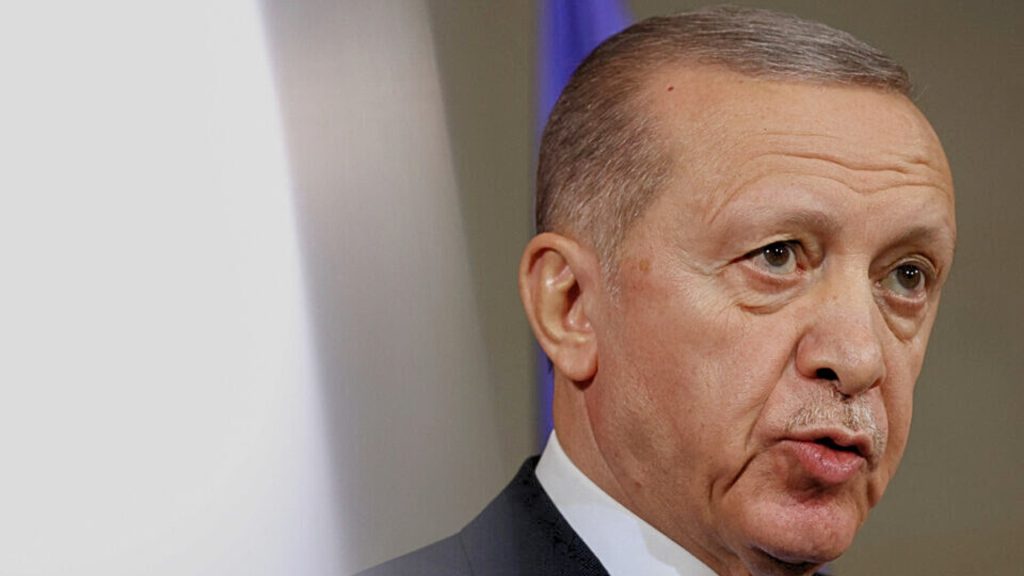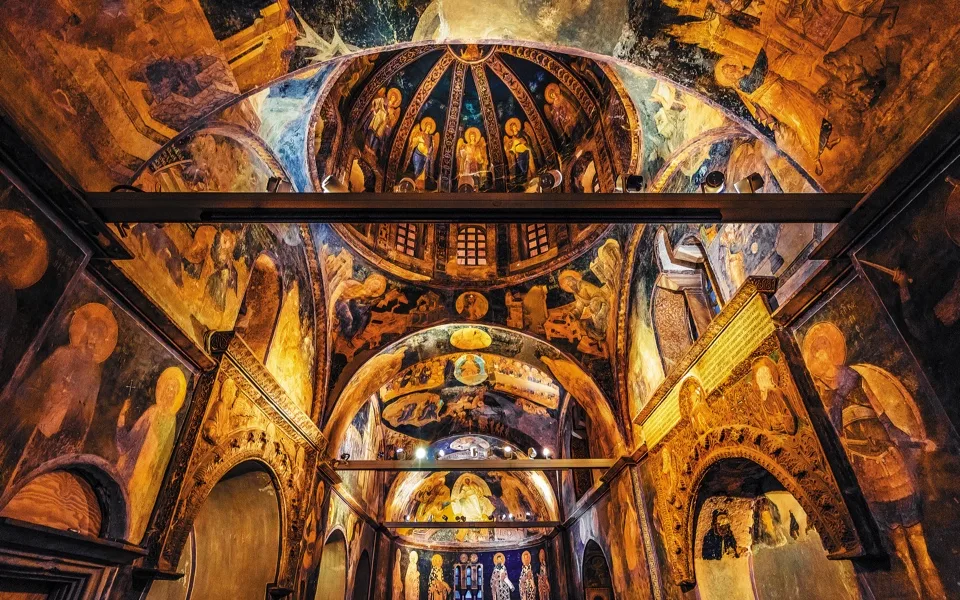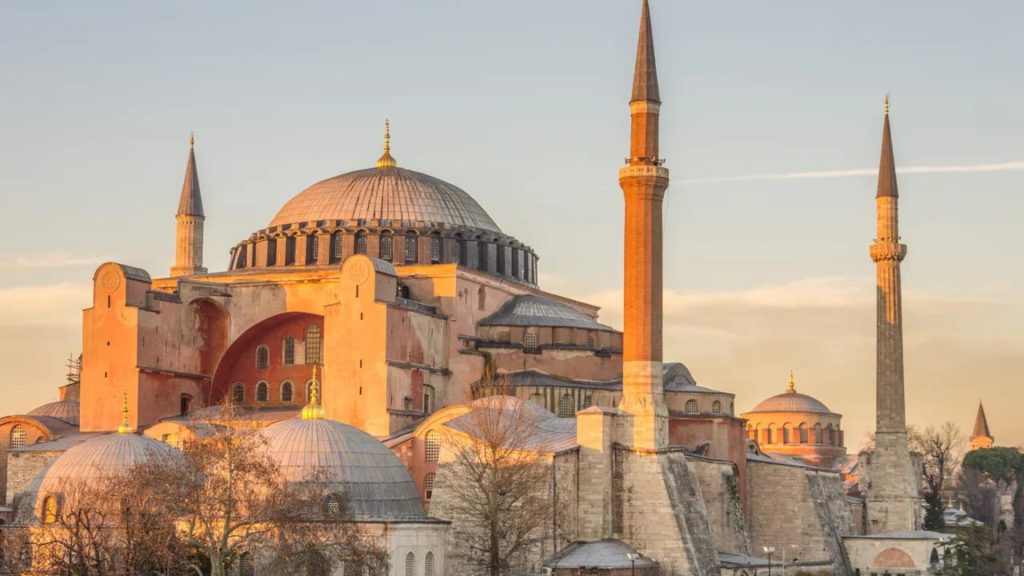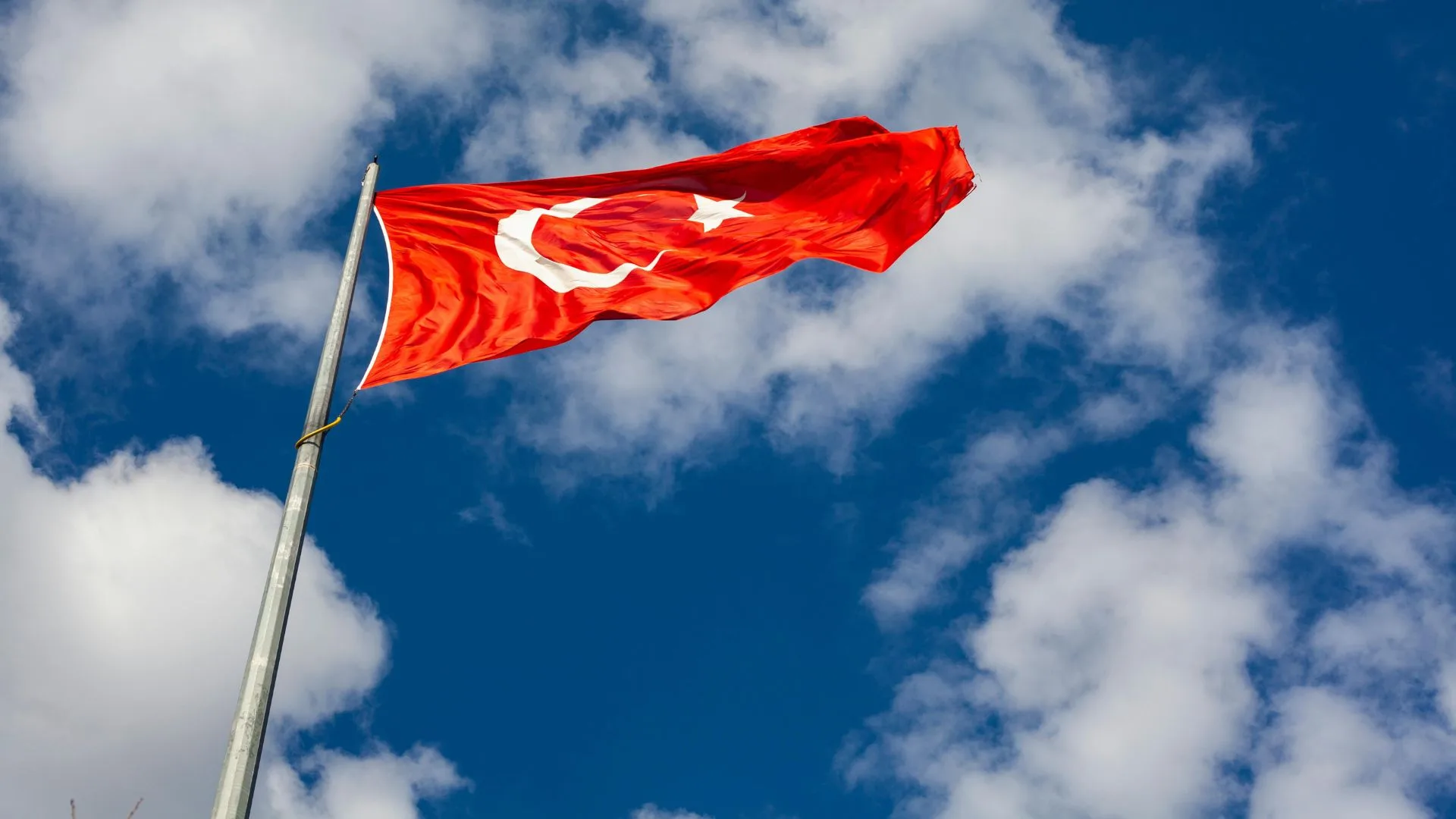By Anastasios M. Tamis*
The church of Agios Sotiros in Chora – the most beautiful monument of Christianity according to Art Historians and Byzantinologists, which was simply the katholikon of the former monastic complex in Constantinople, and whose construction dates back to the 6th century AD, while its unique mosaics and frescoes were created in the 14th century, from 1305 to 1320, during the reign of Palaiologos – was converted by the exponents of neo-Ottomanism, from a Museum and a World Heritage Site into a mosque.
Turkey’s President, Mr. Erdogan, again inspired by his long-standing nationalist and Islamocentric policy, decided to push his country and its society, beyond and away from the secularism that Turkey enjoyed, perhaps uniquely and exclusively in the Muslim world, as a country with a Western-style cultural character. Erdogan, retaining for himself the ambition to put his own photograph on public buildings instead of the photograph of Kemal Pasha, shattered yet another bastion of secular political legacy that the Kemalists gave to the Turks after the establishment of their new state, Turkey, in October 1923.
After twenty years of rule and having tasted for the first time the heavy electoral defeat in the recent elections, the Turkish President again resorted to neo-Ottomanism and the Islamisation of museums and Christian bequests to humanity, in order to soften the heavy blow of defeat, in the form of revenge against the West, but also against his pro-secular compatriots. Also, this vindictive turn against civilisation and Christianity may be a desperate attempt to placate the nationalist Islamist Devlet Bahçeli (Mr. Velopoulos of Greece) and his followers, who support him.
The conversion of the monument into a mosque is celebrated, apart from Islamic fundamentalists and nationalists, and by Turkey’s mainstream media, whose journalists attempt to convince the Erdogan regime that they are siding with his decisions, perhaps to escape possible persecution or incarceration in one of the overcrowded prisons, now flooded with strains of “anarchists” of the regime.
Erdogan’s decision to Islamise, by means of arms, a Christian church, a World Heritage Site, and even provocatively characterise the historic Chora Monastery as his ancestral heritage, less than a week before he will be meeting the Greek Prime Minister, Kyriakos Mitsotakis, is also an insult to his visitor, but also to the Greek people. It is also a sign of hypocrisy and trafficking of religion, what is recently called the instrumentalisation of religion on the part of the Turkish President.

When anarchists or radicalised and bigoted youths in Europe take on the Koran or some of the Islamic mosques, Erdogan tears his clothes. He goes out in anger in front of the television cameras, and in a style dressed in the phonology of the mullahs, he recites curses and makes threats because his religion is reviled and the Koran is trivialised. When a mosque is humiliated or desecrated in civil unrest, Erdogan lashes out at impious Europeans or Jews and teaches them respect for the Divine.
Erdogan’s Islam centric regime, after the failed coup against him eight years ago, turned to a policy of projecting Turkey as a regional power of the Islamic world, as a country that supports and defends the interests of weak Islamic countries. He is the Zorro of the Islamic world, the big hug for all Muslims, even the leaders of Hamas.
At the ceremony held on Easter Monday, Erdogan stated that “in the last 21 years, we have restored 5,500 monuments of ancestors in our country and throughout the geography of our hearts. I see this important ceremony today as another sign of our sensitivity to heritage protection.” His statement concerned the completion of restoration and conservation works of 201 historical monuments by the General Directorate of Vakoufs (Public Benefit Foundations) across Turkey and in Pristina, Kosovo.
This action of the Erdogan regime to abuse the historic church for Christianity and Hellenism, covering with curtains the mosaics and frescoes of the Church of the Savior of the Chora Monastery in Istanbul, was responded not only by the West and Christianity but also by Greece in lukewarmly fashion, almost toothlessly. Greece’s Ministry of Foreign Affairs issued a statement in which it consciously avoided mentioning Christianity.

Specifically, the Greek protest states: “The decision of the Turkish authorities to open the Chora Monastery as a mosque constitutes a provocation to the international community as it alters and insults its character as a UNESCO World Heritage Site belonging to humanity. The preservation of the universal character of monuments and the observance of international standards for the protection of religious and cultural heritage is a clear international obligation that binds all states.”

The mosque will operate on the model of Hagia Sophia. The mosaics on the walls in the prayer area were covered, while an area was designated for tourists to visit with a guide. The church of Agios Sotiros in Chora, the katholikon of the former monastic complex, dates back to the 6th century AD, while its unique mosaics and frescoes were created in the 14th century, from 1305 to 1320, during the reign of Palaiologos. This vindictive and morally lawless act of Erdogan’s Islamocentric regime not only does not contribute to the creation of a climate of friendship with the West, but raises once again the question of whether Turkey can really function as a European state, as its ancestor, Kemal Pasha, envisioned 100 years ago. This road is obviously rough and long.
*Professor Anastasios M. Tamis taught at Universities in Australia and abroad, was the creator and founding director of the Dardalis Archives of the Hellenic Diaspora and is currently the President of the Australian Institute of Macedonian Studies (AIMS).

